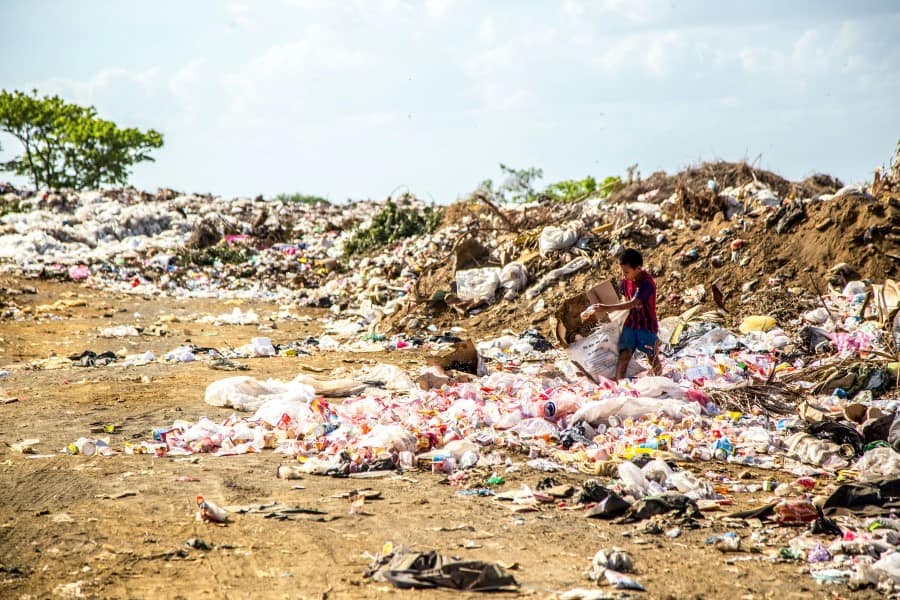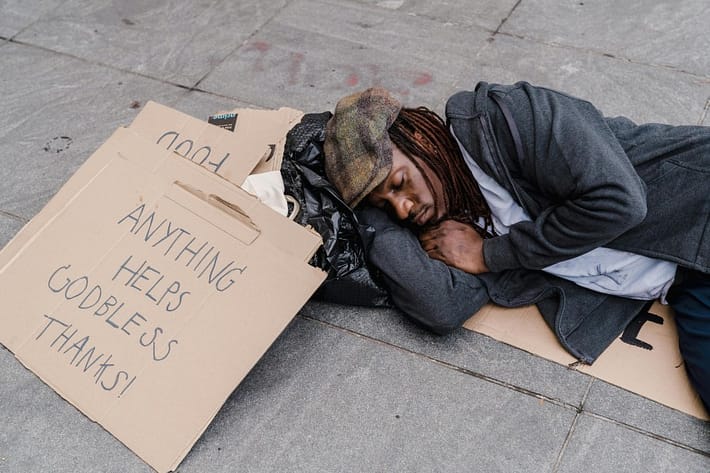Top 25 Effects Of Poverty On Society

Poverty is a pervasive issue that affects billions of people around the globe. Its impact is not only felt by individuals but also by the broader society. The consequences of poverty are multifaceted, affecting health, education, economic stability, and social cohesion. In this article, we will explore 25 significant effects of poverty on society.
1. Health Disparities
Poverty is strongly associated with poor health outcomes. Individuals living in poverty often lack access to adequate healthcare, nutritious food, and clean living conditions. This results in higher rates of chronic diseases, malnutrition, and premature death. The lack of preventive care and timely medical intervention exacerbates these health disparities, creating a cycle of illness and impoverishment.
2. Educational Inequality
Children from impoverished families often face significant barriers to education. These barriers include inadequate school facilities, lack of access to educational materials, and the necessity to work to support their families. As a result, these children have lower academic achievement and higher dropout rates. Educational inequality perpetuates the cycle of poverty by limiting future employment opportunities and earning potential.
3. Economic Instability
Poverty contributes to economic instability both at the individual and national levels. Individuals living in poverty often have unstable incomes and lack financial safety nets, making them vulnerable to economic shocks. At a national level, widespread poverty can slow economic growth and increase the burden on social welfare systems.
4. Crime and Violence
There is a strong correlation between poverty and higher rates of crime and violence. Impoverished communities often experience higher levels of stress, frustration, and social disorganization, which can lead to criminal behavior. Additionally, poverty can push individuals towards illegal activities as a means of survival.
5. Homelessness
Poverty is a primary driver of homelessness. Lack of affordable housing, low wages, and unemployment force many individuals and families into homelessness. This not only affects the physical and mental health of those experiencing homelessness but also strains public resources and services.
6. Food Insecurity
Food insecurity is a common consequence of poverty. Individuals and families living in poverty often struggle to afford nutritious food, leading to hunger and malnutrition. This affects physical and cognitive development, particularly in children, and can have long-term health consequences.
7. Mental Health Issues
Living in poverty is associated with higher rates of mental health issues, including depression, anxiety, and stress-related disorders. The constant struggle to meet basic needs, coupled with social stigma and isolation, exacerbates mental health problems and reduces overall quality of life.
8. Poor Housing Conditions
Individuals in poverty often live in substandard housing conditions. This includes overcrowded, unsafe, and unsanitary living environments, which can lead to a host of health problems, including respiratory issues, infectious diseases, and accidents. Poor housing conditions also negatively impact mental health and overall well-being.
9. Social Exclusion
Poverty often leads to social exclusion, where individuals feel isolated and disconnected from mainstream society. This exclusion can result from lack of access to social activities, educational opportunities, and employment. Social exclusion further entrenches poverty by limiting social mobility and access to resources.
10. Reduced Access to Technology
The digital divide is another significant effect of poverty. Individuals and families in poverty often lack access to computers, the internet, and other technological resources. This limits their ability to access information, education, and employment opportunities, further perpetuating the cycle of poverty.
11. Higher Infant Mortality Rates
Poverty is linked to higher infant mortality rates due to inadequate prenatal and postnatal care, malnutrition, and exposure to harmful environmental factors. This is particularly prevalent in developing countries, where healthcare infrastructure is often lacking.
12. Environmental Degradation
Impoverished communities often bear the brunt of environmental degradation. They may live in areas with high levels of pollution, lack access to clean water and sanitation, and be more vulnerable to natural disasters. This environmental burden further exacerbates health and economic challenges.
13. Lower Life Expectancy
Individuals living in poverty generally have a lower life expectancy compared to those in higher income brackets. The cumulative effects of poor health, inadequate nutrition, lack of healthcare, and increased exposure to violence and stress contribute to this disparity.
14. Educational Deficits
Poverty significantly affects children’s early development and educational outcomes. Children from low-income families often lack access to early childhood education, which is crucial for cognitive and social development. This early disadvantage can lead to long-term educational deficits.
15. Increased Dependency on Social Welfare
Widespread poverty increases dependency on social welfare programs. While these programs are essential for providing immediate relief, they can also strain government resources and create challenges in sustainably addressing the root causes of poverty.
16. Workforce Instability
Poverty contributes to workforce instability as individuals in impoverished conditions often have to work multiple low-paying jobs, face job insecurity, and lack opportunities for career advancement. This instability affects productivity and economic growth.
17. Poor Access to Healthcare
Individuals living in poverty often cannot afford healthcare or live in areas with inadequate healthcare facilities. This results in untreated medical conditions, higher disease prevalence, and lower overall health outcomes.
18. Higher Rates of Substance Abuse
Economic hardship and social stressors associated with poverty can lead to higher rates of substance abuse. Substance abuse further exacerbates poverty by impairing individuals’ ability to work, maintain relationships, and manage their health.
19. Intergenerational Poverty
Poverty often persists across generations. Children born into impoverished families are more likely to experience poverty as adults. This intergenerational transmission of poverty is driven by limited access to education, healthcare, and economic opportunities.
20. Limited Access to Transportation
Lack of reliable transportation is a significant barrier for individuals in poverty. It limits their ability to access jobs, education, healthcare, and other essential services, thereby perpetuating economic and social disadvantages.
21. Poor Nutrition
Poverty often leads to poor nutrition due to limited access to healthy foods. Malnutrition has severe consequences, particularly for children, affecting their physical and cognitive development and increasing susceptibility to illnesses.
22. Increased Risk of Domestic Violence
Economic stress and frustration associated with poverty can lead to increased rates of domestic violence. Financial dependency and lack of resources make it difficult for victims to leave abusive relationships.
23. Higher Suicide Rates
The hopelessness and despair that often accompany poverty can lead to higher suicide rates. The stress of financial instability, social isolation, and mental health issues contribute to this tragic outcome.
24. Reduced Civic Participation
Individuals living in poverty are often less likely to participate in civic activities such as voting or community engagement. This lack of participation can lead to underrepresentation and neglect of their needs in policy-making processes.
25. Decreased Economic Mobility
Poverty limits economic mobility, making it difficult for individuals to improve their financial situation. Barriers such as lack of education, limited job opportunities, and social stigma prevent upward mobility and reinforce the cycle of poverty.
The Effects of Poverty On Society Conclusion
Poverty is a complex and multifaceted issue that affects every aspect of humanity. From health disparities and educational inequality to economic instability and social exclusion, the effects of poverty on society are far-reaching and profound. Addressing poverty requires a comprehensive approach that includes economic policies, social support systems, and community-driven initiatives. By understanding the extensive impact of poverty, we can work towards creating more equitable and just societies where every individual has the opportunity to thrive.
Help Fight The Effects Of Poverty On Society
At End Poverty Now, our ability to make a difference hinges on the kindness of donors like you. Your support provides crucial resources, opportunities, and hope to those in need. Whether you choose to make a one-time donation or become a recurring donor, every contribution helps us on our mission to end extreme poverty.
End Poverty Now welcomes cash donations, but we also specialize in accepting donations of hard-to-sell assets such as real estate, aircraft, vehicles, and boats. These contributions help fund projects dedicated to alleviating poverty both domestically and internationally. Please see how you can help end poverty and thank you for considering us in your philanthropic efforts.
End Poverty Now is a 501c3 nonprofit charity accepting cash donations and specializing in donations of hard-to-sell assets such as real estate, aircraft, vehicles, and boats to fund projects aimed at fighting poverty at home and abroad.


